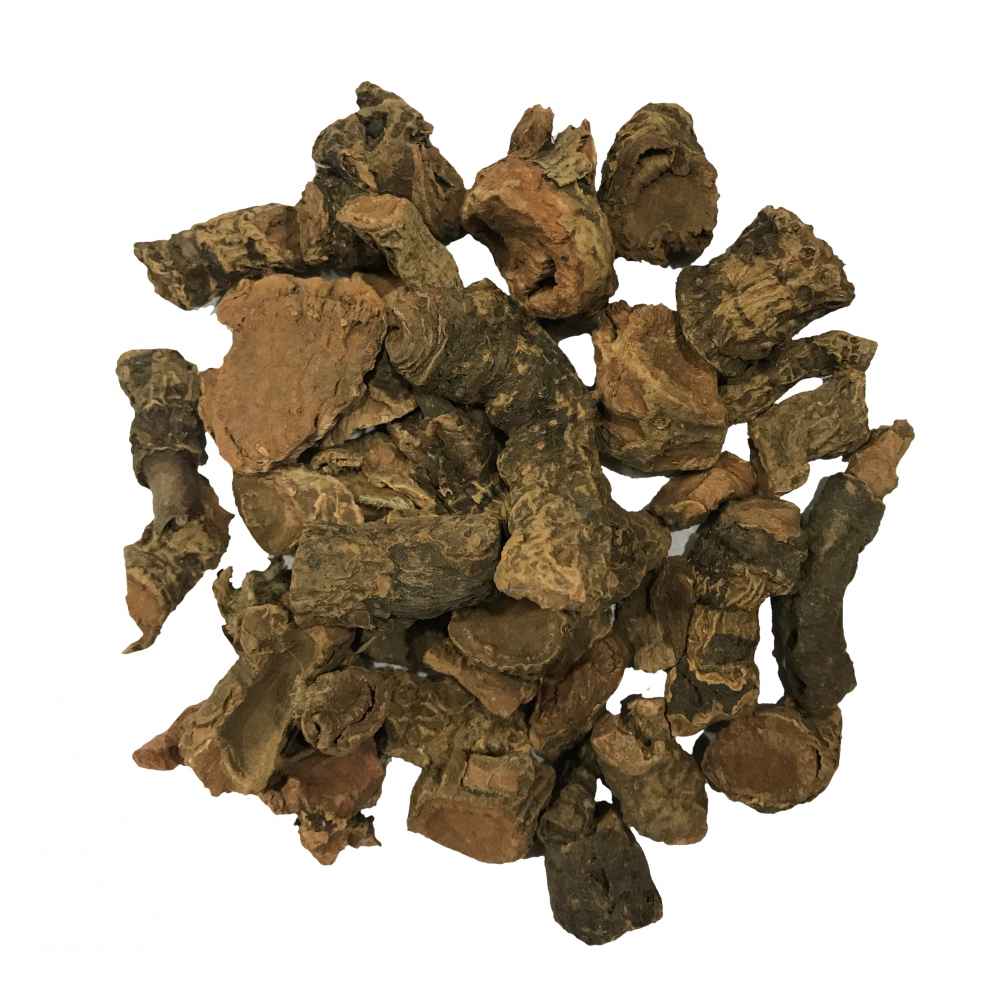- Home
- Ayurvedic Herbs
- Raw Herbs
- Pakhanbed | PashanBhed | Bergenia ciliata


Pakhanbed | PashanBhed | Bergenia ciliata
Bergenia ciliata, Asmabhedaka, Silabheda, Patharkuchi, Himasagara, Patrankur, Pakhanbheda, Silphara, Patharcua, Pakhanabhed, Silpbheda, Alepgaya, Pahanbhedi, Hittaga, Pasanaberu, Hittulaka, Kallurvanchi, Kallorvanchi, Pasanbhedi, Pashanabheda, ... Read More
Pakhanbed | PashanBhed | Bergenia ciliata - 100 Gram
70 50 29 % OFF
Pakhanbed | PashanBhed | Bergenia ciliata - 250 Gram
175 125 29 % OFF
Pakhanbed | PashanBhed | Bergenia ciliata - 500 Gram
350 250 29 % OFF
Pakhanbed | PashanBhed | Bergenia ciliata - 1 Kg
700 500 29 % OFF
Products Description
Pashanbhed or stone breaker is a well known Indian herb. It’s rhizome is the most used part for medicinal purposes. Pashanbhed is mostly used for the removal of kidney and urinary tract stones due to its antilithic property. According to Ayurveda, consuming Pashanbhed powder increases urine production and helps in easy removaI of stones due to its Mutral (diuretic) property.
Pashanbhed might also help in reducing fever due to its antipyretic property and give relief from cough due to its antitussive properties. It might also help manage ulcers due to its antioxidant and antiulcer properties.
You can apply Pashanbhed paste on the skin to manage boils and inflammation due to its anti-inflammatory property
1. Urolithiasis
Urolithiasis is the formation of stones in the bladder or urinary tract. According to Ayurveda, it is known as Mutrashmari. Mutrashmari (renal calculi) is a disease which occurs due to an imbalance of Vata and Kapha dosha. This imbalance of doshas cause Sanga (obstruction) in Mutravaha Srotas (urinary system) and leads to problems in micturition (process of urination). Pashanbhed helps manage Urolithiasis due to its Vata-Kapha balancing and Mutral (diuretic) properties. It prevents the formation of calculi and also helps in the easy expulsion of existing stones via urine by increasing urine production.
Tip to use Pashanbhed to manage Urolithiasis-
a. Take 1-3 grams of Pashanbhed powder.
b. Consume it twice daily with water after meals for easy removal of stones from the body.
2. Dysuria
Dysuria is a symptom of urinary tract infection where an individual suffers from painful or difficult urination. This condition can occur due to an imbalance of any of the three doshas (Vata, Pitta or Kapha). Pashanbhed increases urine production and thus provides relief from painful urination due to its Tridosha (Vata, Pitta and Kapha) balancing and Mutral (diuretic) properties.
Tip to take Pashanbhed to get relief from painful urination (Dysuria)-
a. Take few Pashanbhed roots.
b. Crush them to form a powder.
c. Boil it in a glass of water till water is left 1/4th of its original quantity.
d. Consume this decoction regularly to get rid of any kind of urinary problems.
3. Diabetes
Diabetes, also known as Madhumeha, occurs due to an aggravation of Vata-Kapha dosha as well as impaired digestion. Impaired digestion leads to an accumulation of Ama (toxic remains in the body due to improper digestion) in the pancreatic cells and impairs the function of insulin. Pashanbhed helps manage Diabetes due to its Vata-Kapha balancing and Tikta (bitter) properties. It helps prevent the accumulation of Ama and improves the function of insulin, thereby managing blood sugar levels and reducing the symptoms of Diabetes.
4. Piles
Piles, known as Arsh in Ayurveda, is caused due to an unhealthy diet and a sedentary lifestyle. This leads to the impairment of all the three doshas, mainly Vata and Pitta dosha, resulting in a low digestive fire and eventually persistent constipation. This causes swelling of the veins in rectum area and development of a piles mass. Pashanbhed helps prevent indigestion and relieves constipation due to its Vata and Pitta balancing and Rechana (laxative) property. It also provides a cooling effect to the affected area due to its Sita (cold) property.
The information is for educational purposes only. This information has not been evaluated by the Food and Drug Administration. This information is not intended to diagnose, treat, cure, or prevent any disease.




